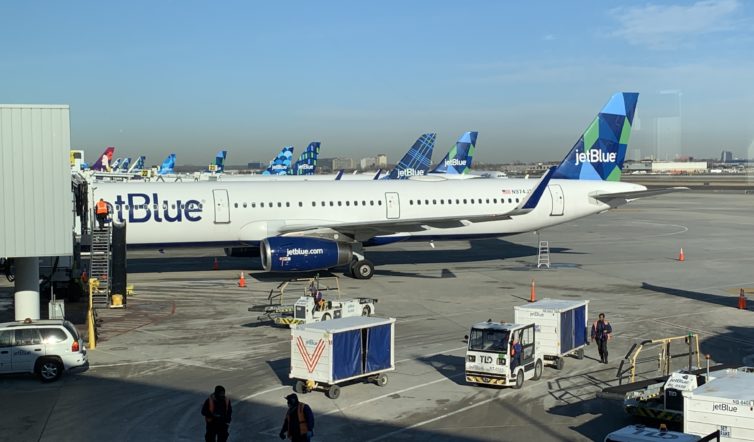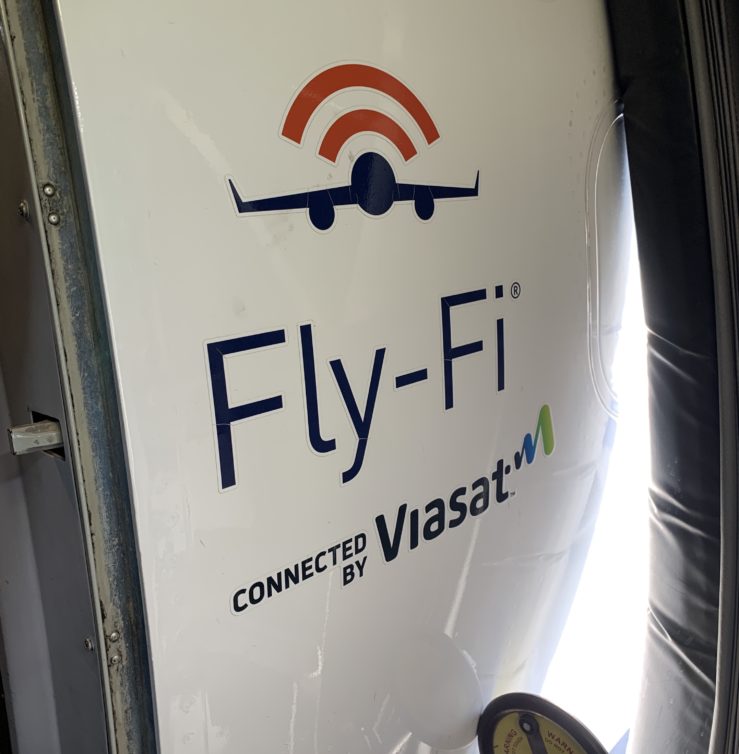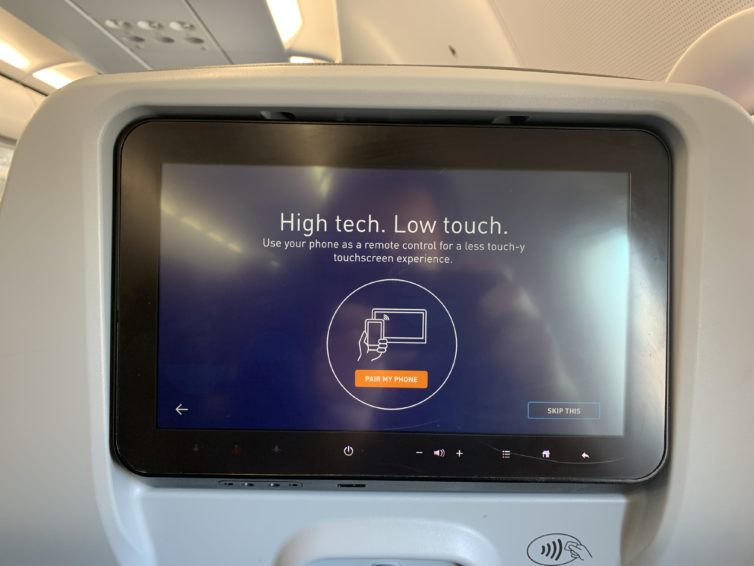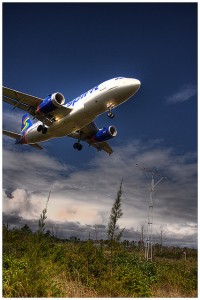How’s this for an AvGeek irony: it’s hard to planespot from a plane. Sure, while you’re on the ground there’s tons of aircraft around. But once you’re in the sky you’re zooming by other planes so rarely — and so quickly — that it’s hard to catch any of them. But one recent flight I took was a fun exception to that rule.

Thanks to a winter wave of employee COVID infections and a high-profile system meltdown, Jetblue had a tough past year from an operational perspective. But they rebounded from those issues, and their onboard economy product still shines strong — especially the free high-speed inflight internet (“Fly-Fi”).
-

-
Fly-Fi is one of JetBlue’s major points of differentiation, and they know it
-

-
To minimize touch points in the COVID era, you can use your smartphone to control the screen
Fly-Fi is a high-bandwidth satellite-powered system that’s now available across the fleet. It provides gate-to-gate connectivity so you could start using it from the moment you board. On my flight from New York to Mexico I waited to log on since there were great takeoff views to be had.

Spirit Airlines Airbus A319 landing.
Spirit has announced a new fee structure and it is causing some airline-hate.
For me, Spirit is the best example of a US-based ultra low cost carrier. They have perfected the art of ala cart pricing, where they offer rock bottom fares, but then have fees for everything else. I think Ryanair holds the crown currently for world-wide uber ultra low cost carrier, but Spirit is quickly catching up. Spirit’s creative fees (ie charging for carry-on bags) causes a lot of media-drama, but it works for them. Most recently they announced a change in their fee structure. If you wait until the last 24 hours before your flight to pay the bag fees, you are going to pay more, but if you pay with more than a day’s notice, your fees stay the same.
Looking at some of the headlines related to this story, you would think Spirit just stole your first born child. For example, Jaunted titled their story, “Spirit Airlines Raises Baggage Fees Again, Screws Over Passengers.” Then, last night the The Consumerist had their story titled something like “Airline charges you a fee to pay a fee,” trying to insinuate some sort of evil double fee. However, it looks like they came to their sense, since this morning, the title has been changed to, “Spirit Airlines Adds Fee For Not Paying Your Baggage Fees Far Enough In Advance.” I have to give them credit for the change.
When first looking at the fees (early vs late, domestic vs international, early vs late), it got very confusing. Luckily Spirit simplified it for me into four tiers:
1. When reserving online more than 24 hours in advance: no price changes
2. While checking online or by telephone: $5 more
3. Waiting until at the airport check-in counter or kiosk: $10 more
4. Pay at the gate: flat $45 fee
Pretty much, if you do not do things last minute, you aren’t going to be charged more. Plus, if you are part of their $9 Fare Club, you will save $10 per fee. Why wouldn’t Spirit do this? People keep flying and paying their fees and Spirit made almost $56million in bag fees alone last year just from January to September (to compare, Delta made over $730million during the same time). This is a lot of extra revenue and very tempting for airlines not only to keep fees, but look at other creative ways to add to fees. According to Dan Webb on Things in the Sky, Spirit has been able to increase their over all bag fee per passenger from $9.59 in the fourth quarter of 2009 to $16.82 for the fourth quarter of 2010.
Some are trying to lobby the government to fight the bag fees and force airlines to include your first bag in the price of your ticket. This just seems inappropriate to me. In the long run, airlines will charge more overall for your ticket and fees and fares should be market driven, not dictated by the government.
Airlines like Southwest and JetBlue still refuse to charge passengers for their first bag, providing alternative for passengers. “Southwest has a 40 year history of sharing the wealth of the maximum value we provide whether it’s in the Customer Service of our People, the predictable efficiency of our operation, or the transparency of our pricing and low fares,” Brad Hawkins with Southwest Communications explains. ” Bags Fly Free and ticketing changes are the pillars of our fee-free stance in not nickel and diming our Customers.”
If you don’t want to pay the fee, then either pay more for a first class ticket or choose an airline that won’t charge you a fee. Even with fees, airline travel with-in the US is very affordable and it is a good thing many can take it for granted.
Image: Noel back in Zurich

The CEO of JetBlue has decided to lower his salary from $500,000 to $250,000 for the remainder of the year due to the worsening airline economy. They have also put a hold on route expansions and receiving new aircraft.
Even though $250,000 per year can still go quite far and it is only for 6 months or so, I think it does show a lot when a CEO is willing to suffer a little bit with the rest of their employees.
Source: The Guardian Image: Flyian




